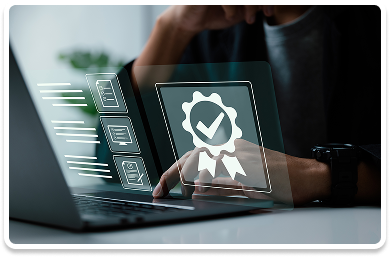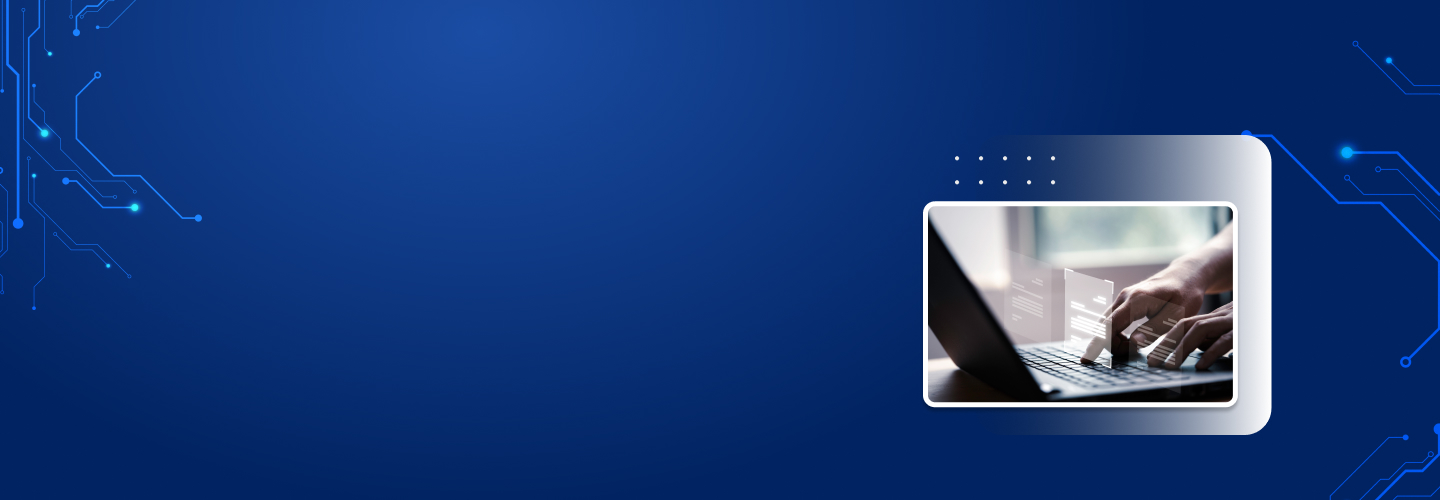-
All Courses
- Data Science & Data Base Management
- Architecture and Design Patterns
- Cybersecurity
- IT Service Management
- Programming & Frameworks
- Project Management
- Scrum & Agile
- Self Paced
- Devops
- Software Testing
- Risk Management
- TOGAF
- Marketing Strategy (MS)
- Android Training
- Classroom Training
- ACP
- CAPM
Architecture and Design Patterns
CYBERSECURITY Protect What Matters Most Master threat detection, ethical hacking, and compliance strategies with Nvidya’s expert-led cybersecurity training. Stay ahead of evolving risks and become the shield your organization needs. ✅ Top Certifications: CEH, CompTIA Security+, CISSP

Design Patterns Certification Training
View Program
Essentials of Professional VLSI Digital Design
View ProgramData Science & Data Base Management
Course Description:NVidya's Python course helps you gain expertise in quantitative analysis, data mining, and the ...

Data Science with Python Certification Course
View Program
R Programming Course for Data Science
View Program
Microsoft SQL Certification Training
View Program
Informatica Certification Training Online
View Program
Data Analytics with R Certification Training
View Program
SAS Training and Certification
View Program
Teradata Certification Training
View Program
Apache Cassandra Certification Training
View Program
MySQL DBA Certification Training
View Program
MongoDB Certification Training
View Program
Data Science Certification Training
View Program
Python Certification Training
View ProgramCybersecurity
Protect What Matters Most
Master threat detection, ethical hacking, and compliance strategies with Nvidya’s expert-led cybersecurity training. Stay ahead of evolving risks and become the shield your organization needs.
✅ Top Certifications: CEH, CompTIA Security+, CISSP
Cybersecurity Certification Course
View Program
Certified Ethical Hacking Course - CEH v12
View Program
CISSP® Certification Training Course
View Program
CompTIA Security+ Certification Training - SY0-601 Exam
View ProgramIT Service Management
Course Description:What are the objectives of this course? After the completion of the Extreme Engineering Programming ...

CRM Salesforce for Beginners
View Program
CISSP-Certified Information Systems Security Professional (ISC)² CBK 2021 Training & Certification
View Program
Extreme Programming Engineering Practices
View Program
COBIT Foundation v5
View Program
OSCP Penetration Testing
View ProgramProgramming & Frameworks
Course Description:NVidya Django course helps you gain expertise in Django REST framework, Django Models, Django ...

Python Certification Course
View Program
Full Stack Web Developer Course
View Program
Java Certification Training Course
View Program
Microsoft SharePoint 2013 Certification Training
View Program
Node.js Certification Training
View Program
Spring Framework Certification Training
View Program
Python Django Training and Certification
View Program
Java, Java EE & SOA Certification Training
View ProgramProject Management
Course Description:Certified Associate in Project Management (CAPM)® Course Overview The CAPM® credential is a ...

Certified Cloud Security Professional (CCSP) Training & Certification
View Program
Training and Exam Prep-Jan-2023-Batch
View Program
Project Management Professional (PMP) Certification Training Online
View Program
PROJECT MANAGEMENT TRAINING (PMBOK6)®
View Program
PROJECT MANAGEMENT TRAINING (PMBOK6) and Rita Mulcahy book
View Program
Certified Associate Project Management (CAPM) Certification
View Program
PMP Certification Exam Training
View Program
PMI®Agile Certified Practitioner Training
View Program
Project and Infrastructure Financing
View Program
Combo PMP 6 Edition + TOGAF 9 Certified
View Program
PMP® Training and Exam Prep - (Jan2021 Batch1)
View Program
Ethical Hacking Course & CEH Certification (V11)
View Program
PMP® Certification Training Course
View Program
PSM 1 Professional Scrum Master Level 1 Training & Certification
View Program
PSM 2 Professional Scrum Master level 2 Training & Certification
View Program
CSM Certified ScrumMaster Training & Certification
View Program
PSPO Professional Scrum Product Owner Training & Certification
View Program
Training and Exam Prep-PMP-DEMO
View Program
Training and Exam Prep-May-2022-Batch
View Program
Leading SAFe 5.1 SAFe Agilist Training & Certification
View Program
CISM Certified Information Security Manager Training & Certification
View Program
CISA Certified Information Systems Auditor Training & Certification
View Program
CSPO Certified Scrum Product Owner Training & Certification
View Program
SAFe Product Owner Product Manager 5 Training & Certification
View ProgramScrum & Agile
Course Description:Scrum Product Owner Certified (SPOC™) certification exam is designed to confirm applicants practic ...

Certified Scrum Master® (CSM) Certification Training
View Program
Certified Scrum Product Owner Certification
View Program
Leading SAFe® 5.1 Training (SAFe Agilist Certification)
View Program
SAFe® 5.1 Scrum Master Certification (SSM)
View Program
SAFe® 5.1 Product Owner Product Manager Certification (POPM)
View Program
SAFe® 5.1 Advanced Scrum Master (SASM) Certification
View Program
Scrum Fundamentals Certified
View Program
SCRUMstudy Agile Master Certified
View Program
Scrum Product Owner Certified (SPOC™)
View Program
SCRUM MASTER CERTIFIED
View Program
SCRUM CERTIFIED DEVELOPER
View ProgramSelf Paced
Course Description:The PMP® designation is recognized worldwide as the standard of the profession attesting to one’s ...

CISSP Live Class July-22 Batch
View Program
CISSP Live Class Demo
View Program
CISSP Selfpaced Training
View Program
PMP Self-Paced Training
View Program
Soft Skills Development
View Program
CISSP Live Class February-23 Batch-4
View Program
CISSP Live Class January-23 Batch-1
View ProgramDevops

DevOps Certification Training Course
View Program
Kubernetes Certification Training Course: Administrator (CKA)
View Program
Continuous Integration with Jenkins Certification Training
View Program
Docker Training and Certification
View Program
DevOps Certification Training
View ProgramSoftware Testing

Selenium Certification Training
View Program
RPA using UiPath Certification Training
View Program
Manual Testing Certification Training
View Program
Selenium 3.0 Certification Training
View ProgramRisk Management

Risk Management
View ProgramTOGAF

Enterprise Architecture using the TOGAF® Standard, 10th Edition.
View ProgramMarketing Strategy (MS)

Marketing Strategy Associate
View Program
Marketing Strategy Expert
View Program
Marketing Strategy Specialist
View Program
Marketing Strategy Professional
View ProgramClassroom Training

PROJECT MANAGEMENT TRAINING PMBOK6 ( Corporate Training )
View Program
PROJECT MANAGEMENT TRAINING (PMBOK6)
View Program
Certified Business Analysis Professional
View Program
Big Data on Hadoop training
View Program
IOS Application Training Advanced
View Program
IOS Application Training Basic
View Program
Android Application Training advanced
View Program
Android Application Training basics
View Program
SCRUM DEVELOPER CERTIFIED
View Program
SCRUM MASTER CERTIFIED (SMC™)
View Program
PgMP (Program Management Professional)
View ProgramACP

AWS Certification Training Course for Solutions Architect
View Program
Agile Certified Practitioner (ACP) Training and Exam preparation Online
View ProgramCAPM
Nvidya’s CAPM® Certification Training ‘s comprehensive program equips you with a strong grasp of core project management concepts, including predictive approaches, agile practices, and key business analysis techniques—all aligned with globally recognized PMI® standards.

CAPM@ Certification Training Course
View Program

